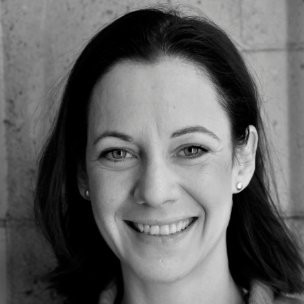The world's greatest investors make their picks for 2006
Earlier this month, Barron’s held the first of its Roundtables for this year. Here we look at what panelists such as Marc Faber, Felix Zulauf and Bill Gross - “some of the world’s smartest investors” - think will happen in 2006...

Get the latest financial news, insights and expert analysis from our award-winning MoneyWeek team, to help you understand what really matters when it comes to your finances.
You are now subscribed
Your newsletter sign-up was successful
Want to add more newsletters?

Twice daily
MoneyWeek
Get the latest financial news, insights and expert analysis from our award-winning MoneyWeek team, to help you understand what really matters when it comes to your finances.

Four times a week
Look After My Bills
Sign up to our free money-saving newsletter, filled with the latest news and expert advice to help you find the best tips and deals for managing your bills. Start saving today!
Earlier this month, Barron's held the first of its Roundtables for this year. Here we look at what the panelists - "some of the world's smartest investors" - think will happen in 2006...
The outlook for the US economy
John Neff, a retired portfolio manager for Vanguard Windsor Fund, argued that 2006 would be a "good one for the economy", a view with which Marc Faber, of Marc Faber Ltd, agreed ("We have a fairly optimistic, unanimous consensus view about the global economy for 2006") but with caveats ("frequently events happen outside financial markets that then have an impact on them").
Bill Gross of Pimco was less than positive, suggesting that GDP growth in the US would average only 2% over the year and weaken into the second half, thanks to a fall in consumption "related to the housing market". For years, the American homeowner has been using his home "as an ATM", says Gross, withdrawing equity to shore up consumption. But this trend appears to be over. Refinancings have absolutely collapsed and as a result low-end discretionary spending has already fallen.
MoneyWeek
Subscribe to MoneyWeek today and get your first six magazine issues absolutely FREE

Sign up to Money Morning
Don't miss the latest investment and personal finances news, market analysis, plus money-saving tips with our free twice-daily newsletter
Don't miss the latest investment and personal finances news, market analysis, plus money-saving tips with our free twice-daily newsletter
It won't take long for the high end to slow too, said Felix Zulauf of Zulauf Asset Management. The result? "The US economy will slow decisively during the course of the year, particularly in the second half, and in 2007."
The future for US markets
Still, regardless of the worries over the economy, many of the panelists are still bullish on the market. Archie MacAllaster of MacAllaster Pitfield MacKay forecast that "profit growth will be close to 10% again" and "dividends will be up much more than 6%", all of which should support shares. However, his optimism comes with a warning too: "if we don't make some progress in Iraq, I would forget the stockmarket this year."
Neff disagreed. Given that the market is "not expensive", he can't see that what happens in Iraq will make any difference. Scott Black of Delphi Management shared the bullish outlook ("on the high end, the S&P could rise about 12%"), as did Oscar Schafer of OSS Capital Management ("one reason I'm kind of bullish is that we are finding a lot of stocks to buy") and Art Samberg of Pequot Capital Management, who pointed out that the bears should be drawing comfort from the fact that last year Warren Buffett "put $12bn into equities". The year before, he had said he could find nothing to buy.
Less optimistic was Fred Hickey, editor of The High-Tech Strategist, who pointed out that if Ben Bernanke, the incoming chairman of the Federal Reserve, "gets aggressive and cuts rates... the dollar is going to get killed", which makes it hard to make a case for owning any dollar-denominated assets. And even if rates aren't cut, says Hickey, after a few good years the market is now surely "due for at least a short-term setback".
The outlook for Asia
Japan may still have further to rise, said Faber, but given its great rally in 2005, there are now more attractive opportunities in Asia. In Malaysia, Singapore and Taiwan, "the dividend yield on the stockmarket is higher than the bond yield", for example, making them look pretty cheap.
Samberg is a fan of the Taiwanese market too and there was general agreement that China's huge capital-spending boom makes that market look as interesting as ever. However, investing directly still comes with the same problems as ever (liquidity and transparency). The solution? Asian-orientated exchange traded funds (ETFs) can provide good exposure, says Gross, given that they are "attractively priced" and come with low expenses.
The next move in oil prices
With the big oil fields set to see declining production and demand from India and China still rising, the oil price has to keep rising long term, said Shafer. That doesn't mean $100 oil immediately, said Zulauf, who only expects oil to be $50-$70 (Shafer says $55-$75), but eventually "it will go a lot higher".
Faber agreed, but there was caution from Mario Gabelli, chairman of Gamco Investors Inc. We were once running short of whales, he says, but we found alternatives, and the same will be true for oil. "Nukes and other alternative sources around the world" mean we won't always need oil.
What Barron's tipsters would buy now
In this first part of the Barron's Roundtable, only Bill Gross and Archie MacAllaster gave their top tips (the second part is published next week). Gross's first choice was the BlackRock Global Floating Rate Income Trust, a closed-end bond fund. It invests in bank loans, mainly BB or Baa rated (relatively high-risk loans, but still all ones made to "viable corporations"). At the moment, the fund yields a nice 8%, but if US interest rates keep rising to 5% or 5.5%, it will, he says, benefit further.
Gross also likes the Pimco Corporate Income Fund, another closed-end bond fund, and two ETFs, the iShares MSCI EAFE Index fund, which invests in Europe, Australia and the Far East ("it's an equity play as well as a weak-dollar play") and PowerShares FTSE RAFI US 1000.
MacAllaster liked Bank of America, which has just closed the deal to buy MBNA, making it "the largest credit-card business in America". Many people see this as a negative, but not MacAllaster: "I view it as a positive because they will be able to finance a lot of business on low-cost deposits from the bank." He thinks the shares could go to $60, 25% above current levels, and also likes Capitol Bancorp, Allstate, National City, Fidelity National Title and Old Stone (although this is "real speculation").
Get the latest financial news, insights and expert analysis from our award-winning MoneyWeek team, to help you understand what really matters when it comes to your finances.
Annunziata was a deputy editor at MoneyWeek, covering financial markets, politics, economics and comment pieces. She then went on to the Daily Telegraph as a lead writer where she wrote a column on young women’s financial issues. She was briefly a member of the European Parliament for the East Midlands region in the UK as part of the Conservative Party. Annunziata continues to write as a freelance journalist.
-
 Should you buy an active ETF?
Should you buy an active ETF?ETFs are often mischaracterised as passive products, but they can be a convenient way to add active management to your portfolio
-
 Power up your pension before 5 April – easy ways to save before the tax year end
Power up your pension before 5 April – easy ways to save before the tax year endWith the end of the tax year looming, pension savers currently have a window to review and maximise what’s going into their retirement funds – we look at how
